Keynote Speakers
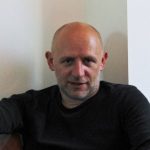 Professor Manolis Gavaises
Professor Manolis Gavaises
City, University of London
Professor Gavaises graduated from the department of mechanical engineering of the National Technical University of Athens (NTUA) in 1992 and received his PhD from the Department of mechanical engineering of Imperial College London in 1997. For his PhD Thesis he was awarded with the 1998 Richard Way Prize for ‘Most outstanding doctoral thesis in the area of IC engines in the UK’ from the Universities Internal Combustion Engines Group (UnICEG) and the Arch T. Collwell Merit Award from the Society of Automotive Engineers (SAE). He was appointed lecturer at the School of Engineering and Mathematical Sciences of City, University of London in 2001, promoted to Reader in 2006 and Professor and Director of the Energy and Transport Research Centre at City, University of London in 2009. In 2009-2012 he was holding the Delphi Diesel Systems Chair in FIE Fluid Dynamics. He is a Fellow of the Institution of Mechanical Engineers in the UK (IMechE) and the Institute of Mathematics and it’s Applications (IMA). He is on the editorial board of four journals, and on the scientific and/or organising committee of numerous international conferences and workshops. He has published over 160 papers in scientific journal and peer reviewed conference proceedings.
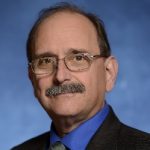
Professor Joseph Katz
John’s Hopkins University
Joseph Katz received his Ph.D. and M.S. from the California Institute of Technology and his B.S. at the Tel-Aviv University. He is the William F. Ward Sr. Distinguished Professor of Engineering at the Department of Mechanical Engineering, Whiting School of Engineering, at Johns Hopkins University. He is Director and co-Founder of the Center for Environmental and Applied Fluid Mechanics (CEAFM) at JHU, and he manages the Laboratory for Experimental Fluid Dynamics, and the new Hopkins Heart Initiative. Dr. Katz also serves as the Chair, Board of Journal Editors of the American Society of Mechanical Engineers (ASME). He is a Fellow of ASME and of the American Physical Society (APS), as well as a JHU Gilman Scholar. research extends over a wide range of fields, with a common theme involving experimental fluid mechanics, and development of advanced optical diagnostics techniques for laboratory and field applications.
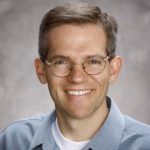 Dr Lyle Picket
Dr Lyle Picket
Sandia National Laboratories
Dr. Pickett received his PhD from the University of Wisconsin-Madison in 2000. He now holds the title of Distinguished Member of the Technical Staff at Sandia National Laboratories in Livermore, California, a position held by only the top 10% of the R&D staff at Sandia. He is leader of a program at Sandia’s Combustion Research Facility investigating direct-injection (DI) engine fuel sprays and the ensuing combustion processes. LP has sustained funding from the U.S. Department of Energy, and other automotive and energy industries totalling more than $11M USD to support his laboratory over the last 15 years. His research is award winning, having received 6 different Society of Automotive Engineers (SAE) “best-paper” category awards, as well as similar awards from the Institute of Liquid Atomisation and Spray Systems and American Society of Mechanical Engineers. LP conceived and leads a major international experimental and modelling collaboration focused on DI spray combustion research, called the Engine Combustion Network (ECN). The ECN is now the focal point for fundamental DI engine spray research and is driving research globally in this field. He serves as an organizer or scientific committee member for SAE, the Combustion Institute, LES4ICE, and is a fellow of the SAE. He has published over 100 scientific papers (H-index 38), and delivered over 20 invited keynote talks.
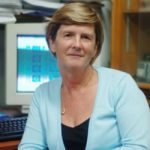 Professor Gail ter Haar
Professor Gail ter Haar
The Institute of Cancer Research
Gail ter Haar’s PhD research was a study of the interaction of ultrasound with tissue, in an effort to further understanding of both the safety of diagnostic ultrasound and of its potential therapeutic applications. She has continued this interest throughout her research career, initially developing an ultrasound hyperthermia system and looking at synergistic effects of ultrasound on heating tissue. The principle of this form of cancer therapy is that the dose of X-rays or drugs can be reduced when tissue is heated by 6-10ºC, and still achieve the required therapeutic effect.Gail is currently chair of both the British and European committees for medical ultrasound safety and scientific secretary of the European Society for Hyperthermic Oncology. She holds an MA(Oxon) and PhD in Physics and has been awarded a DSc(Oxon) in clinical medicine.
 Prof. Marc C. Fivel
Prof. Marc C. Fivel
SIMaP, Grenoble INP Materials Science
Prof. FIVEL graduated from the Mechanical Department of Ecole Normale Supérieure in 1993 and received his Ph.D. from Grenoble Institute of Technology in 1997. After a Post Doc at Lawrence Livermore National Laboratory, he was hired at CNRS doing his research at laboratory Science and Engineering of Materials and Processes (SIMaP) in Grenoble, France in 1998. He was promoted to CNRS research Professor at SIMaP in 2009. He was awarded the Jean Mandel price in 2003, the CNRS Bronze Medal in 2005 and the Dislocation 2016 conference award for scientific achievement in dislocation theory and plasticity. He has published 76 papers in international journals, 5 book chapters and gave more than 60 invited talks in international conferences. His main research activity focuses on multiscale modelling of crystal plasticity.
 Professor Shuhong Liu
Professor Shuhong Liu
Tsinghua university
Professor Shuhong Liu received her PhD degree in Kyushu Institute of Technology of Japan in 2001. She now works as a full professor at the Department of Thermal Engineering, Tsinghua University of China. Main research interests include cavitation and multiphase flow, instability in fluid machinery, aerodynamics of wind turbine, heart pump and bio-fluid mechanics.
 Dr Russel Locket
Dr Russel Locket
City, University of London
Dr Lockett completed his PhD degree at the University of Cape Town, South Africa, in laser diagnostics and chemical kinetic modelling of abnormal combustion in gasoline engines. He then undertook a five-year post-doctoral fellowship in laser diagnostics in combustion at Cranfield University. During this period he worked on laser ignition, the structure of partially premixed flames, premixed laminar and turbulent explosion flames, spray structure, fuel-air mixing and combustion in gas turbine combustors and diesel engines.
In 1998 he joined City University as a Lecturer in Applied Thermodynamics. During the period 2000-03, he undertook research in soot formation in rich partially premixed flames, and fuel-air mixing in direct injection gasoline engines.
In the period 2006 – 17, he has developed a collaboration with Shell Global Solutions, undertaking research in the effect of fuel properties and cavitation on atomization in diesel sprays, the effect of cavitation on the composition of diesel, and cavitation inception in immersed jet shear flows.
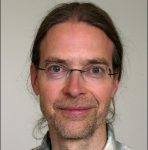 Dr Robert Mettin
Dr Robert Mettin
University of Goettingen
Dr. Robert Mettin is senior scientist at the Third Physics Institute, Georg-August University, Göttingen (Germany). He studied physics at Technical University Darmstadt (Germany) where he received the Diploma in 1992 and the PhD in 1996. Afterwards he moved to Göttingen and conducted research on topics in the field of nonlinear dynamics, acoustics, and fluid dynamics. Since 2009 he is head of the Christian Doppler Laboratory for Cavitation and Micro-Erosion. Recent work refers mainly to ultrasound and acoustic cavitation, dynamics of bubbles and drops, and applications thereof.
 Dr Foivos Koukouvinis
Dr Foivos Koukouvinis
City, Univesity of London
Dr Phoevos Koukouvinis graduated from the department of mechanical engineering of NTUA in 2008 and obtained his PhD from the same department in 2012 in the area of CFD simulation of impulse hydraulic turbines. After completion, of his PhD, in early 2013, he was appointed as post-doctoral fellow at the International Institute of Cavitation Research at City to perform computational research on simulation of cavitation erosion. In 2017 he was promoted to Lecturer at City, University of London. His research interests include multiphase flow/cavitation in hydraulic machinery (such as pumps, injection systems, etc.), cavitation and interaction with turbulence, compressible multiphase flows and bubble dynamics.
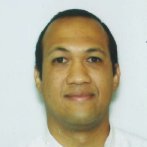 Dr Robert McDavid
Dr Robert McDavid
Caterpillar US
Dr Robert McDavid currently leads a team of 24 Caterpillar engineers executing a €12 million research portfolio encompassing various diesel engine, mild hybrid and machine technologies. Dr. McDavid led the development and initial deployment of Caterpillar’s next-generation combustion CFD code, and more recently, 5 UK-Government co-funded research programs. He is an award-winning author in computational fluid dynamic simulation of reacting flows. He is a session Co-Organiser and Reviewer for the SAE World Congress for the Combustion in Compression-Ignition Engines and Multi-dimensional Modelling sessions.
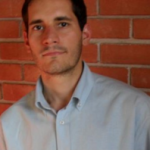 Dr Ioannis Karathanassis
Dr Ioannis Karathanassis
City, University of London
Dr Ioannis Karathanassis received his PhD from the National Technical University of Athens in 2015 specializing in heat-transfer enhancement techniques and design of cooling devices. In the time period 2009-2015, he was also a Research Associate of the Solar & other Energy Systems Laboratory of NCSR Demokritos, where he designed experiments for the evaluation of various renewable-energy applications. Since June 2015, he is working as a Marie Curie Fellow (Industry Academia Partnership and Pathways PIAP-2012-324313) at City University with his research interests comprising modelling of cavitating and boiling flows in injectors, as well as experimental measurements and visualization of highly-transient cavitating flows. IK has a deep understanding of flow-separation mechanisms and mass-transfer processes. From an experimental point of view, he is highly experienced in the development of experimental procedures suitable for the characterization of complex flows. The findings of his research have been published in high-quality journals and conferences. He has published over 15 papers (H-index 3).
 Dr Ian Rivens
Dr Ian Rivens
The Institute of Cancer Research
Ian Rivens graduated with a degree in Physics from Imperial College in 1989. He has a PhD in Biophysics from the Institute of Cancer Research where he works as a post-doctoral staff scientist researcher. He has worked in many areas of high intensity focused ultrasound (aka HIFU or FUS) for over 20 years. He has experience with MR and US imaging guidance and monitoring, of single element and phased array therapy devices and laboratory expertise ranging from calibration, through experiments using laboratory phantoms, in vitro experimentation to pre-clinical and clinical trials. He is a state registered clinical scientist. His current research interests include passive acoustic cavitation detection during therapy ultrasound induced ablation and histotripsy, and during exposures adjuvant to radiotherapy for overcoming hypoxia induced radio-resistance.
 Dr Andrew King
Dr Andrew King
Rolls Royce Controls
Andrew, 54, is an Associate Specialist with Rolls-Royce Control Systems, based in Birmingham UK. He has spent the majority of his career in the aerospace industry, working in a variety of engineering roles on fuel management systems for gas turbine engines with a particular emphasis on new product development. In recent years he has moved to a full time role in computational analysis, working on extending the company’s capability in key areas. He graduated from the University of Manchester in 1984 with a degree in Mechanical Engineering.
 Dr Mark Brend
Dr Mark Brend
Loughborough University
Mark Brend is a senior researcher at the Rolls-Royce UTC in Combustion System Aerothermal Processes. Mark received his PhD from the University of Warwick in experimental fluid dynamics. Since joining the UTC in 2010, Mark has worked on a wide range of industrially focussed projects. These have predominantly targeted optical field measurements of single and two phase phenomena produced by engine hardware with boundary conditions representative of the engine environment. Since July 2016 Mark has been working with Rolls-Royce Control Systems to develop a capability to measure the 3D spatial distribution of cavitation formation within a modern gas turbine fuel pump.
 Dr Cristiano Bombardieri
Dr Cristiano Bombardieri
DLR
Graduated at Politecnico di Milano in 2010 in aerospace engineering. Since 2011 he works as a research and test engineer at the German Space Center (DLR), in the Rocket Propulsion department.
His main research topic is two-phase flows in feedline system with storable and cryogenic propellants. He is an experimental researcher and his activities focus on fast transient phenomena such as water hammer, priming and cavitation, with minor numerical work on gas desorption models and transient friction. Other research interests include cryogenic boiling and chill-down. As a test engineer, he supports the transient analysis of cryogenic rocket engine test facilities with focus on start-up and shut-down sequences. He is currently a PhD candidate at RWTH Aachen.
 Assoc. Prof. Matevz Dular
Assoc. Prof. Matevz Dular
University of Ljubljana, Slovenia
Assoc. Prof. Dr. Matevz Dular graduated from University of Ljubljana in 2002. From 2002 to 2004 he worked at TU Dartmstadt and defended PhD in 2005. Since 2005 he is working at the University in Ljubljana where he was elected to assistant professor in 2007 and to associate professor in 2012. Combined he spent more than three years as a guest professor at FH Heidelberg and at Arts et Metiers ParisTech de Lille (France). He authored over 50 scientific peer reviewed papers, a Springer book chapter and is a co-author of 7 patents. His main research topics are basic fluid mechanics, turbo-machinery, cavitation, erosion, CFD and visualization. He supervised over 30 MSc theses, six PhD theses and is currently advisor to 3 PhD students and 2 PostDocs. He is currently involved as a PI on two larger research projects dealing with cavitation and cavitation erosion in cryogenic liquids for the European Space Agency ESA.